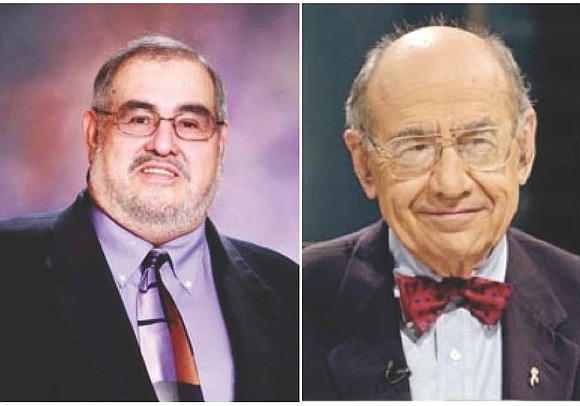Lovell's Food For Thought - The Lost of Elders & Their Oral History
The need to create an oral history of leaders in the health disparities movement
Dr. Lovell Jones | 10/26/2018, 6 a.m. | Updated on 11/13/2018, 3:36 p.m.

I was recently informed that one of my dearest friends passed away, Dr. Frank Talamantes. About a month earlier, I received word regarding the death of another friend, Dr. Gil Friedell. Although we did not see each other frequently, both Frank, Gil and I remained in contact over the years. In fact, Frank and I recently shared our thoughts about what the next generation would be facing in today’s social/political climate. How would they not repeat the errors we made? Not only the impact of our collective efforts to address health inequities, but impact on our families as well. The rippling effects, both positive and negative, of fighting what seems to be a never-ending battle.
These two individuals helped set the tone for addressing health inequities in a biopsychosocial manner, not only for their communities, but other communities as well. For Gil was the one who brought true diversity into the Biennial Symposium Series, when he attended the first in1987 and said poor white people have health disparities too. His voice completely broadened everything. Frank, Gil and I shared the vision that addressing health inequities in silos, be it academic, areas of interest, communities or you name it; that such efforts were doomed to fail. Unfortunately, what we continued to see is that we continue to remain in our silos, and because of such, more than 30 years later, we are still talking about inequities.
Let me again say to anyone reading this piece who want to reduce, and ultimately eliminate, health inequities or inequities of any kind, get out of your silos and talk to each other. For as I continue to say "Health Alone will not solve the issue of health inequity. It never has and never will."
When I communicated these most recent deaths to friends and colleagues, a friend wrote back - "I really think that an oral history needs to be done before more individuals die. Both Frank and Gil were great supporters of Intercultural Cancer Council (ICC). They are gone and their voice was not recorded. My friends and colleagues were right on target. We don't have their voices, but we still have their thoughts. However, it would be even better to have had their thought recorded. It is amazing to hear a voice and the impact such has. It is truly the spoken word that sometimes penetrates deeper than just seeing and reading something on paper.
One of the things Frank, Gil and I talked about was the reinventing of the wheel. In fact, not too long ago, I wrote an op ed piece on this subject (http://stylemagazine.com/news/2017/aug/18/lovells-food-thought-reventing-wheel-threat-progre/). I wish I had recorded some of our conversation. In thinking of this it brought to mind an interview I did a few months after I retired. I was approached by Dr. Tacey A. Rosolowski, one of the librarians at MD Anderson in charge of oral history. Tacey called me and said, “Dr. Jones, I am charge of creating a historical archive of those individuals who contributed to the history of MD Anderson.” It would be great to have your recorded voice as part of this archive. Naturally I said yes, and what was originally scheduled to be a 2 to 3-hour interview, turned into a total of approximately 8 hours of taped conversation covering all aspects of my life. So, when my friend mentioned the lost of an oral history from these two, my mind immediately thought of this interview. I also thought of how hard it would be to find, if one did not know where to look. With that, I am providing the link to this piece of oral history that took place January 2014. Again, it is close to eight hours of unedited conversation. The conversation covers approximately 50 plus years of my life, with a good historical record of my time at MD Anderson and the issues resolving around Race and Racism (https://mdanderson.libguides.com/JonesLA).
What is also ironic is that the other day my wife suggested that I write a book on my life, including all of the issues that impacted my life and the impact my career had on my immediate family. Sometimes we forgot the rippling effects of such on spouses and children. Given that my wife has now talked about me writing something, maybe it is time to do doing. I have already come up with a title that was given to me several years ago - "Rebel with A Cause. I was also thinking of "Family of Origin Issue - How They Impact One’s Life." Maybe it would be worthwhile to write two books to go along with recorded history.
With that thought, I would ike encourage an effort put together an archive on those individuals who have made a difference in addressing health inequities. I point to this specifically because our continuing to forget our history in this regard. For as George Santayana said "Those who cannot remember the past are condemned to repeat."



